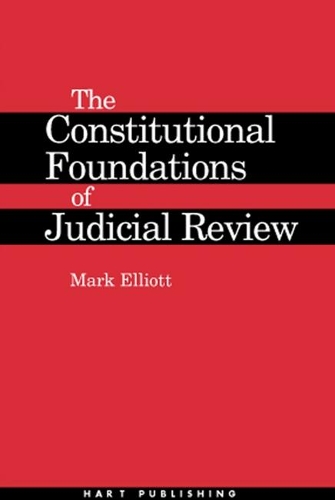
The Constitutional Foundations of Judicial Review
(Hardback)
Publishing Details
The Constitutional Foundations of Judicial Review
By (Author) Mark Elliott
Bloomsbury Publishing PLC
Hart Publishing
16th March 2001
United Kingdom
Classifications
Tertiary Education
Non Fiction
Legal systems: general
Sources of law: legislation
347.41012
Physical Properties
Hardback
296
Width 156mm, Height 234mm, Spine 23mm
624g
Description
Recent years have witnessed a vibrant debate concerning the constitutional basis of judicial review, which reflects a broader discourse about the role of the courts, and their relationship with the other institutions of government, within the constitutional order. This work analyzes the foundations of judicial review. It subjects the traditional justification, based on the doctrine of ultra vires, to critical scrutiny and fundamental reformulation, and it addresses the theoretical challenges posed by the impact of the Human Rights Act 1998 on administrative law and by the extension of judicial review to prerogative and non-statutory powers. It also explores the relationship between the theoretical basis of administrative law and its practical capacity to safeguard individuals against mal-administration. The book seeks to develop a constitutional rationale for judicial review which founds its legitimacy in core principles such as the rule of law, the separation of powers and the sovereignty of Parliament. It presents a detailed analysis of the interface between constitutional and administrative law, and should be of interest to all public lawyers.
Reviews
It is a challenging work in every sense of the term. The thesis is closely argued. It enganges the reader. It is combative. -- Paul Craig Nicholas Bamforth, Oxford University * Public Law *
A stimulating and exciting discussion of argument for judicial review, which will surely be the source of much debate. -- Christian Jowett * New Law Journal *
Author Bio
Mark Elliott is a University Lecturer in Law at the University of Cambridge,and a Fellow, Director of Studies and Richard Fellingham Lecturer in Law at St. Catharines College, Cambridge.
